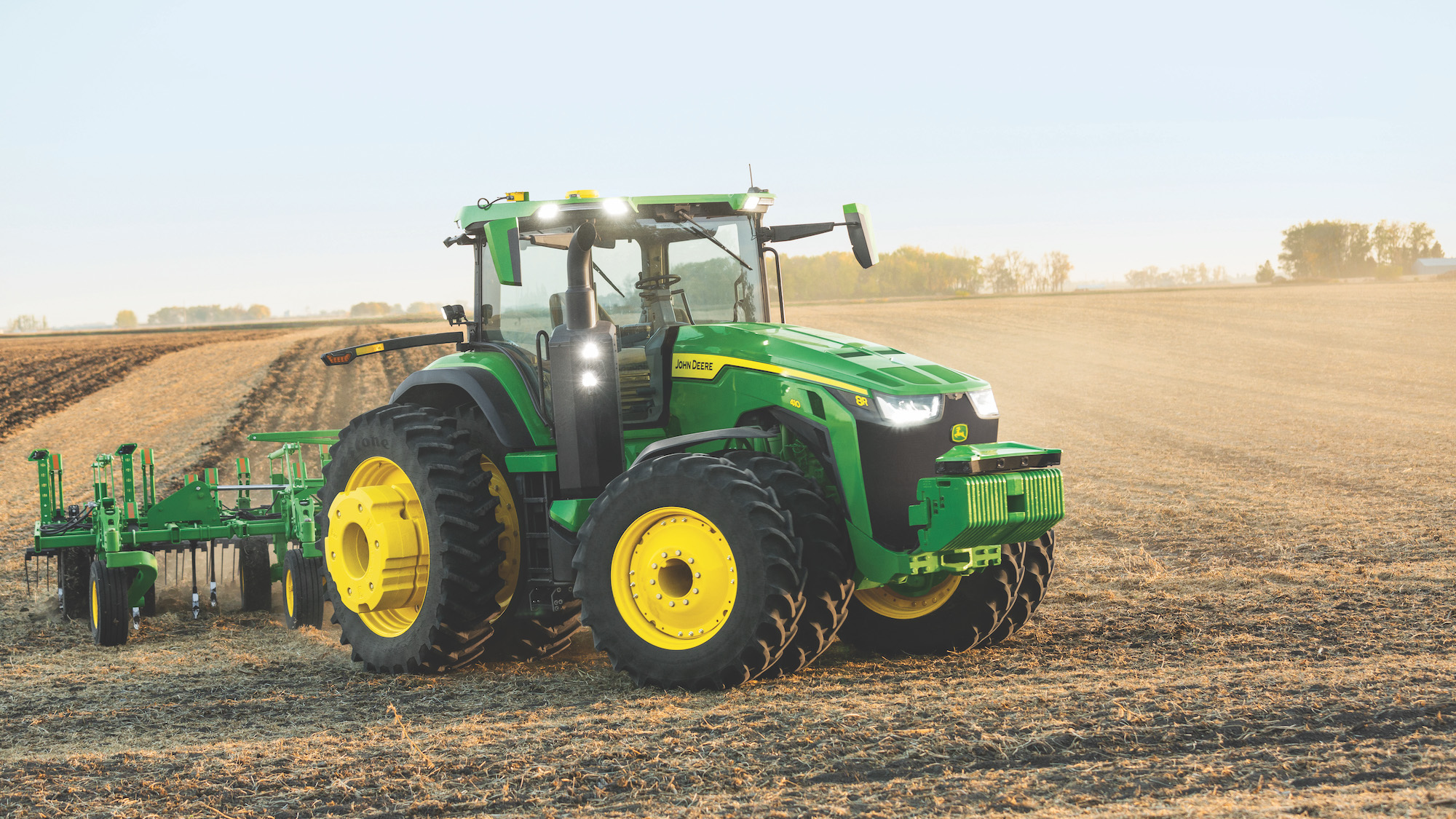

After over 180 years in operation, John Deere has adapted its mechanical farm equipment into a modern fleet of high-tech vehicles including driverless tractors, automated seed planters, and herbicide sprayers capable of distinguishing between crops and weeds. Then there’s the catalog of software tools enabling remote field monitoring to assess soil health, seed growth, and many other critical agricultural factors.
[Related: John Deere agrees to let farmers fix their own equipment, but there’s a catch.]
But all those cutting-edge agricultural tools require stable internet connections for over-the-air updates, data-sharing, diagnostics, self-repair solutions, and machine-to-machine communications, among many other needs. This is particularly a problem for rural regions that chronically lack reliable internet infrastructure—Deere estimates approximately 30 percent of farm acreage in the US does not possess reliable Wi-Fi access.
To remedy this (and pursue a major revenue goal) John Deere has publicly announced a partnership deal with SpaceX’s Starlink subsidiary to begin offering satellite internet subscriptions in certain farming regions later this year.
As reported on January 15 by The Wall Street Journal, Deere currently supplies an estimated 60 percent of high-horsepower, high-tech farming vehicles across US and Canada, but intends to generate a tenth of its annual revenue stream from software subscriptions by 2030. This, however, would require many rural farmers to gain access to strong internet connectivity. In 2022, Deere solicited a call for proposals related to establishing satellite internet options to help “further connect its fleet of intelligent machines,” eventually selecting Starlink following eight-months of extensive testing of various companies’ satellite equipment installed on combines, trucks, grain carts, and other agricultural vehicles in real-world settings.
[Related: In photos: How John Deere builds its massive machines.]
SpaceX’s Starlink launched its first orbital equipment in 2019, and is now one of the most popular satellite broadband internet providers. Over 5,300 working satellites are now in orbit, with the company aiming to eventually support an estimated 36,700 more in the coming years. Starlink’s services are primarily intended for customers in remote regions of the world, as well as those residing in areas without reliable internet infrastructure—hence Deere’s interest.
Of course, satellite internet access, when finally available to farmers and licensed Deere equipment vendors, will come with fees. Official dealers will also need to purchase and install a “ruggedized Starlink terminal” on compatible machines alongside a 4G LTE JDLink modem to enable machine connectivity with the John Deere Operations Center.And then there will be the subscription bills—although Deere representatives say pricing for Starlink’s “pizza-box-size antennas,” as well as fees for software access have yet to be determined.
